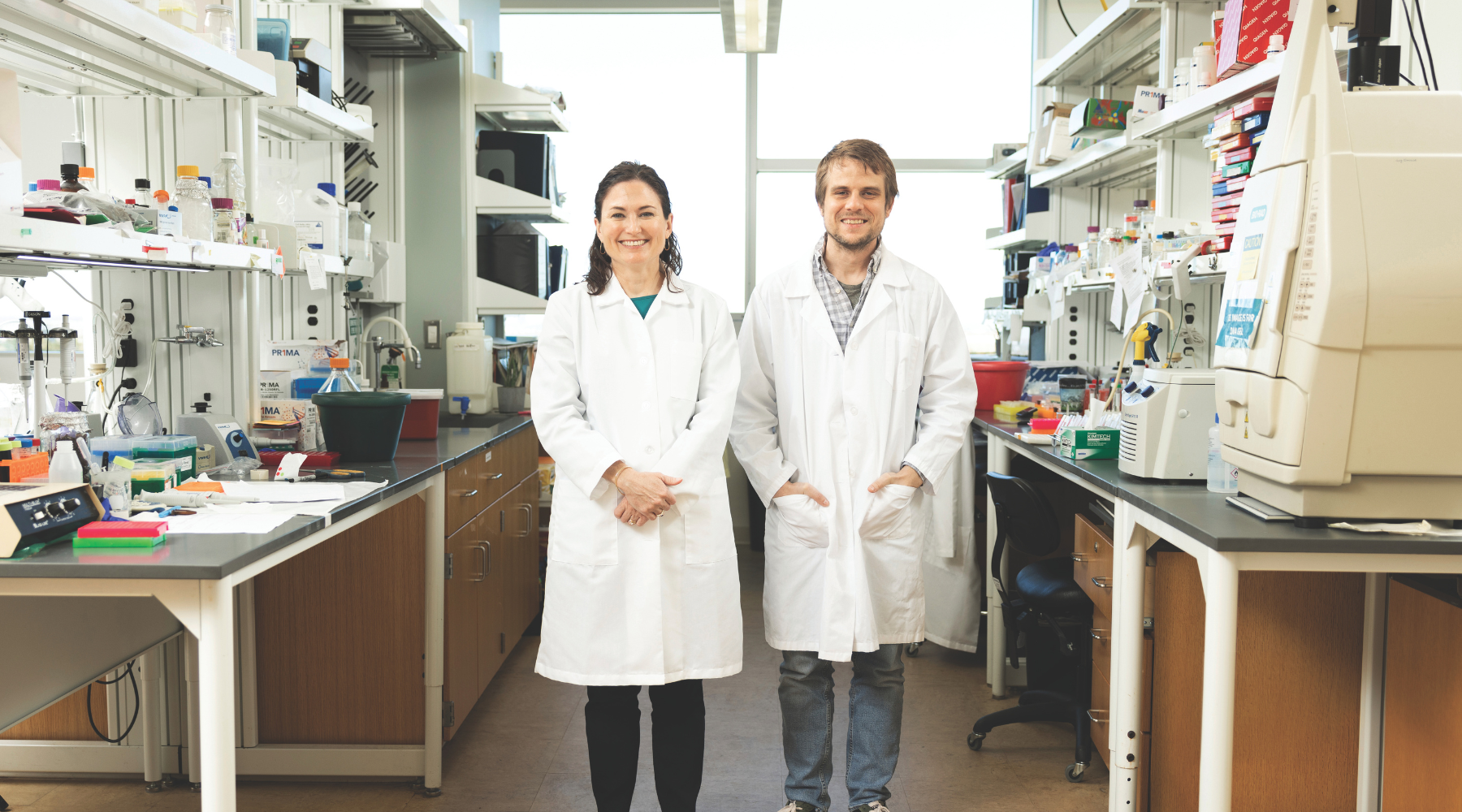Researchers studying vision loss make a surprising discovery about the lungs.
Dr. Courtney Griffin has a word for vascular biologists: “lucky.”
Griffin, OMRF’s vice president of research, studies the development and maintenance of our blood and lymphatic vessels. Because these vessels span the entire body, scientists who investigate them often go where the science takes them. Most recently in her lab, it was to the lungs – by way of the eyes.
In 2020, Griffin and Dr. Chris Schafer, a postdoctoral researcher on her team, made an exciting discovery about reversing vision loss caused by excess blood vessels. In a follow-up experiment, Schafer found one of the proteins involved in controlling the growth of vessels in the eyes was doing something curious in the lungs.
In infections, immune cells travel through blood vessels to fight pathogens. A protein called ERG acts as a gatekeeper, telling vessels when to become porous for these cells to escape where the body needs them most. Sometimes, those holes become too big and stay around too long.
In the case of infections like influenza, Covid-19 and sepsis, that can spell trouble for the lungs.
“This can flood the air sacs in the lungs with fluid,” says Schafer, who joined Griffin’s lab in 2016.
The overreaction can lead to acute respiratory distress syndrome, or ARDS. The condition makes breathing difficult and prevents oxygen from getting into the body. Often, it requires treatment with a ventilator. About 190,000 Americans are diagnosed with ARDS annually, according to the American Lung Association. Of those, the death rate is as high as 40%.
Schafer found that in research models of certain respiratory viruses and sepsis, the body stops producing ERG only in the lungs. Without the gatekeeper protein, the lungs fill with fluid.
“It happens extremely quickly,” he says. “What we’re searching for is a way for the body to counteract the immune overresponse and begin making ERG again as rapidly as possible.”
Ideally, says Griffin, who holds the Scott Zarrow Chair in Biomedical Research at OMRF, “that would come before a patient needs a ventilator.” Ventilators can increase the risk of pneumonia, lung damage, blood clots and secondary infections.
The pair is now trying to understand what’s inhibiting ERG in lung cells in the first place. “Once we know that, we’ll have our target for intervention,” Schafer says.
The work will take time, and they don’t know where the road will weave along the way. But one thing’s for certain: they both feel fortunate to be on it.
—
Read more from the Summer/Fall 2024 issue of Findings



